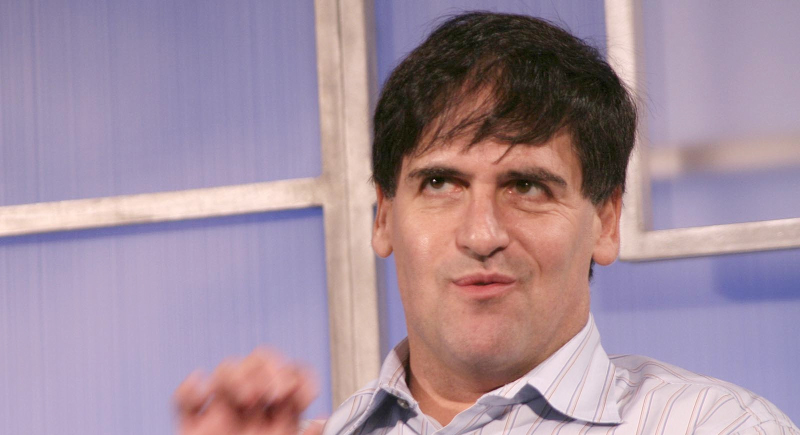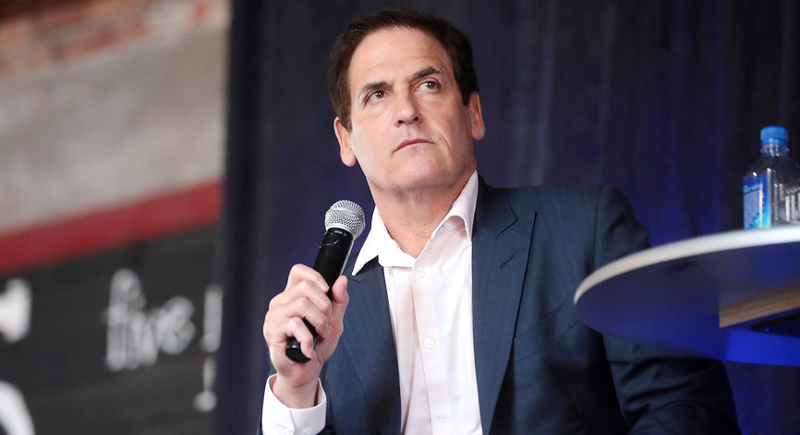What Mark Cuban Tells Broke People to Do With Their Money
Mark Cuban keeps his money views direct. He built wealth without hype and doesn’t dress up his opinions. His approach stays grounded in practice on “Shark Tank” or off it. Let’s discuss some of his takes on building financial security.
Keep It Cheap, Especially Early On

Credit: Wikimedia Commons
Getting that first paycheck feels like a green light to spend. Mark Cuban remembers the pull to trade in his old car—but didn’t. He kept it, saved the money, and stayed focused. His advice: “Live like a student.” That early discipline helped him build a base for everything that came after.
Don’t Trust Credit Cards

Credit: freepik
To Mark Cuban, credit cards are trouble. He calls them a bad investment, even if you pay them off monthly. The interest rates stack fast, and one slip turns into a balance that’s hard to shake. He sticks to debit or cash to stay in control. Spending money you don’t have isn’t worth the price that comes with it.
Beat Price Hikes With a Smart Stock-Up

Credit: freepik
Cuban took to Bluesky with a simple tip: Grab the basics before tariffs increase prices. He’s talking soap, toothpaste, and toilet paper—items you’ll need anyway. Even U.S.-made products might soon cost more since companies often blame tariffs for increases. Buying non-perishables in bulk today could mean fewer headaches tomorrow, especially for families trying to make every dollar count in a shaky economy.
The Power of a $20 Bill

Credit: pexels
He has no problem talking billions, but Cuban still believes a $20 bill can go a long way, especially face-to-face. In Vanity Fair, he explained how offering $20 cash for a $30 yoga class often works. Because many places would rather take a sure sale than lose one. A clear offer, made in person, gets results.
Smarter College Choices Start with Price Tags

Credit: Wikimedia Commons
Cuban chose Indiana University because it was affordable and not flashy. On the Fishbowl podcast, he said students should focus on learning, not school names. He values thinking skills over majors and believes low-cost options like community colleges or state schools make more sense. The goal is to finish school with knowledge, not heavy debt.
Crush Debt Before Chasing Gains

Credit: Canva
Before jumping into investments, Mark Cuban wants people to handle what’s already costing them. In his view, knocking out high-interest debt is the smartest first move. Paying off a loan with a 7% rate gives you a return of—surprise—7%, minus the market risk. Clearing balances beats rolling the dice with stocks or real estate.
Emergency Fund Comes First

Credit: Getty Images
Before putting money into long-term plans, cover short-term needs. The priority is having cash for surprise expenses, not just retirement savings. Even setting aside $5 or $10 each week builds a cushion. A small fund can keep a minor setback from becoming a major problem.
Index Funds Over Hype

Credit: Canva
Cuban keeps investing simply. He recommends putting money into low-cost index funds like the SPX. In his view, it’s less about picking winners and more about steady growth with minimal fees. The plan doesn’t rely on timing or trends—just discipline.
New Tech Levels the Playing Field

Credit: Getty Images
The moment something new launches, no one’s ahead. Mark Cuban claims that’s your chance to jump in. Learn it early, dig deep, and you might spot a way to use it that others haven’t. Technology moves fast, but that speed creates fresh openings. If you’re among the first to understand a tool, you can spot how it solves problems.
Treat Risk Like a Bet You’ve Already Lost

Credit: Canva
Adventurous investing has its place, but the mindset matters. According to Cuban, putting 10% into something volatile, like Bitcoin, should come with one rule: assume it’s already lost. That mental trick helps you keep your main finances steady while still playing the odds. Keep your core money safe, and treat moonshots like they’re already out of reach.
Collectibles Don’t Pay Dividends

Credit: Canva
Shoes, cards, and artwork might look like investments, but they don’t earn anything while you hold them. These items only have value if someone else decides they want them. That means you’re banking on taste, timing, and trends—not steady income. One generation’s prized collection often turns into attic clutter for the next.
Sit It Out if You’re Unsure

Credit: freepik
If an investment sounds exciting but doesn’t make sense, walk away. There’s no shame in doing nothing if you don’t grasp the whole picture. Jumping into crypto or complex trades without understanding them is like betting blindly. Just because everyone else is chasing returns doesn’t mean you should join the sprint.
Blueprint for Financial Independence

Credit: freepik
Building income streams you control is a key strategy for financial independence. Developing side hustles, freelance gigs, or small businesses you own and operate is extremely important. By creating ventures over which you have complete control, you can benefit directly from your efforts and decisions.
Overlooked Industries Are Goldmines

Credit: Getty Images
Glitzy ventures like fashion lines or trendy restaurants often attract attention, but they come with fierce competition and low barriers to entry. Cuban points out that these industries can be traps, especially for those chasing quick fame. Instead, he highlights the potential in less glamorous sectors, like waste management or pest control, where fewer players mean more room to thrive.
The Key to Business Success

Credit: flickr
Knowing what your customers want is key to getting results. Cuban emphasizes the importance of quickly grasping what your clients and their companies require. Aligning your approach to helping them succeed increases your chances of success. In today’s market, where options abound, businesses prioritizing their customers’ success stand out.